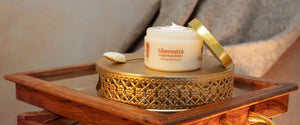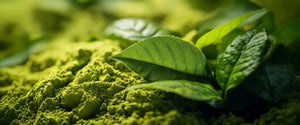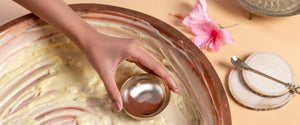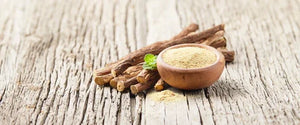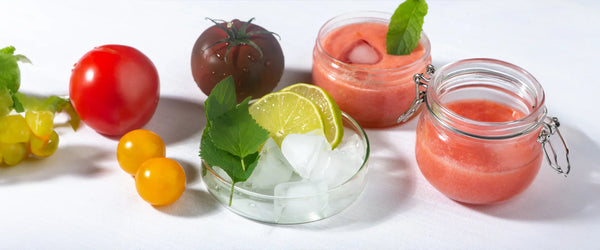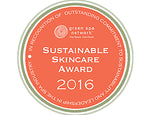
Understanding and Repairing a Damaged Skin Barrier

Highlights
Before diving into the signs of a damaged skin barrier and how to repair it, it's crucial to understand what the skin barrier is. The skin barrier, or stratum corneum, is the outermost layer of your skin. It consists of dead skin cells (corneocytes) and lipids (fats) that form a protective shield. This layer plays a vital role in maintaining skin health by:
- Protecting: Acting as a defense against environmental pollutants, bacteria, and harmful agents.
- Retaining Moisture: Preventing water loss, keeping your skin hydrated and supple.
- Regulating: Controlling the entry and exit of substances, maintaining a balanced internal environment.
Imagine your skin barrier as a wall of bricks (corneocytes) with mortar between them (lipids). Your skin appears healthy and soft when this barrier is intact. However, if they are compromised things start to go wrong in your skin.
What and How Skin Barrier Breaks DownPrevention of damage needs understanding the causes that lead to skin barrier breakdown. Here are some common reasons:
- Products filled with Alcohol, strong pleasantries and harsh chemicals strip off natural oils. These products also impair the lipid matrix, preventing it from holding in moisture and protecting against irritants.
- Over-Exfoliation: Exfoliating too frequently or using aggressive exfoliants can wear down the skin barrier, leading to microtears and the removal of essential lipids, increasing sensitivity and irritation.
- Environmental Factors: Extreme weather conditions, pollution and UV radiation can mimic and cause oxidative stress and result in inflammation, both of which can compromise your skin barrier.
-
Stress and Lack of Sleep: Chronic stress and insufficient sleep affect the body’s ability to repair and regenerate skin cells. This results in a weakened barrier, making the skin more susceptible to damage and aging.
- Medical Conditions: Conditions like eczema, psoriasis, rosacea, and adult acne can inherently weaken the skin barrier. These conditions cause chronic inflammation and disrupt the skin's natural repair processes.
Identifying the signs of a damaged skin barrier can help you take necessary action to repair and protect your skin. Below are the most common indicators:
- Redness and Inflammation – Persistent redness, irritation, burning or stinging sensation in response to products. Increased penetration of irritants and allergens is the result of a weakened skin barrier.
- Dryness and Flakiness: Dry, rough, and flaky skin that may peel or have an ashy appearance suggests impaired moisture retention, leading to dehydration of the skin.
- Increased Sensitivity: Sudden sensitivity to products and environmental factors, resulting in itching and discomfort, points to a lowered defense against external aggressors, making the skin more reactive.
- Breakouts and Acne: Frequent breakouts, clogged pores, and inflamed pimples indicate an inability to fend off bacteria and regulate sebum production effectively.
- Discoloration and Uneven Skin Tone: Hyperpigmentation and uneven skin tone are caused by inflammation and irritation that trigger melanin overproduction in affected areas.
Choose gentle products: Opt for skin care products that do not contain alcohol, strong scents, and harsh chemicals. Shankara India skincare is a great example. This way, you diminish your risks of experiencing your skin reacting to the product and lipids balance being compromised.
Exfoliate moderately: You should not exfoliate too often: while two times a week would be enough. Furthermore, you should exfoliate gently. Opt for something that contains lactic acid or less abrasive AHA. By doing this, you will not damage your skin barrier much and will be able to remove the dead cells from your skin.
Use sunscreen and protect your skin from other harmful effects of the environment. Use a broad-spectrum sunscreen of at least SPF 30 and wear appropriate clothing. It will protect your dermis from excessive UV penetration and block harmful substances from the polluted air.
Maintain a Healthy Lifestyle: Eat a balanced diet rich in antioxidants, vitamins, and minerals; get regular exercise and sufficient sleep. This supports skin health from the inside out, promoting repair and regeneration.
How to Repair a Damaged Skin BarrierIf your skin barrier is already damaged, taking steps to repair it is crucial. Here’s how you can restore your skin’s health:
- Use Barrier Repair Products: Look for products with ingredients like ceramides, niacinamide, and fatty acids. These ingredients help replenish the skin’s lipids and strengthen the barrier.
- Hydrate Inside and Out: Drink plenty of water and use hydrating skincare products like Shankara India’s Hydrating Cleanser - Fine Line & Daily Repair Serum with ingredients like hyaluronic acid and Chamomile. This ensures your skin remains moisturized, aiding in barrier repair.
- Simplify Your Skincare Routine: Stick to a basic routine with minimal products to avoid overwhelming your skin. This reduces the risk of further irritation and allows the barrier to heal.
To avoid further damage to the skin and allow it to heal:
- Do not use further irritants: Think of any product you might be using that could irritate your skin even more, such as harsh cleansers or exfoliants and try to stay away from them, including environmental pollutants.
- Using hot water: Use warm water, not hot: This will help keep the skin hydrated as you are not removing its natural oils, which hotter water would wash off.
- Which types of cleansers to use: Use a mild cleanser without soap: Not only will it clean your face without removing important substances, but it is intentionally made for sensitive skin, as soap could hurt it even more.
Apply a sunscreen lotion daily: Even without actually being hit by UV light in your house, your skin can still be weakened, which can indeed make the situation even worse.
ConclusionThere is always so much to learn and keep in mind about our skin barrier! But when it comes to damaged skin barrier, the signs are clear and there are ways to prevent and hopefully repair it. Keeping a gentle skincare routine, protecting our skin against environmental factors, and trying to follow a healthy lifestyle should all keep our skin barrier happy and strong. If you are still running into issues, seeing a dermatologist and getting your skin inspected and treated is the way to go. And remember – happy skin starts with a healthy barrier!






